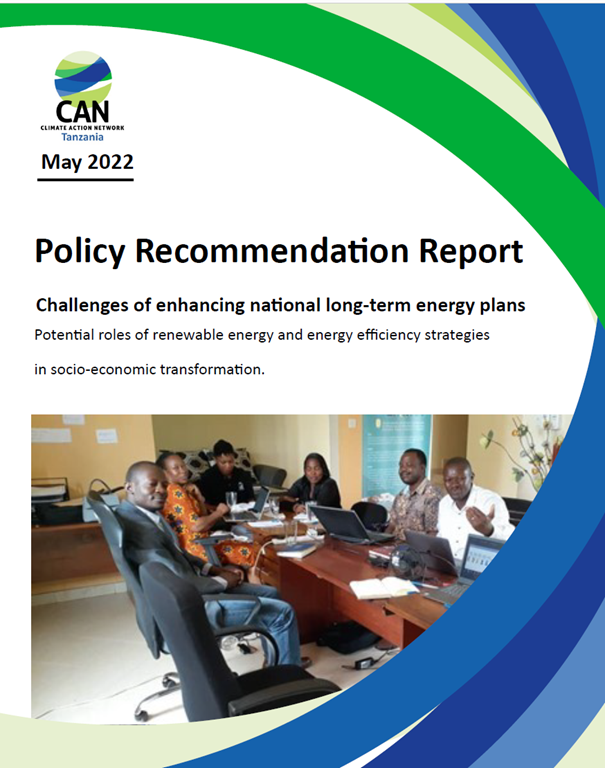
Published: MAY 19, 2022
Energy is an important life blood of almost all socio-economic activities in the world. In developing countries and especially those found in the East Africa community and Tanzania in particular, energy is considered to play a significant role in addressing poverty and building climate resilience among communities. Accesible and cheap energy is key to ensure and catalyze a sustainable development.
Tanzania is still dependent on both imported fossil fuels and local biomass with many risk attached to it : volatily prices, stranded assets, impact on climate, health and environment. On the other hand Tanzania has a huge potential of RE which untapped. To foster ecological and socio-economic transformation in Tanzania, realization of renewable energy potentials and energy efficiency technologies could play a significant role if efficiently tapped. initiatives across the globe including Tanzania have been made to ensure sustainable energy for the people. Despite this initiative, RE has remained inadequately tapped to enhance productivity for socio economic transformation. Less Community Participation, lack of standalone renewable energy regulatory framework and coordination, extreme poverty to large part of communities and low level of awareness has continued to setback the progress towards increasing RE contribution in the energy sector. The increased education and awareness will initiate the anxiety to establish, develop and exploit a wide range of renewable energy and energy efficiency technologies in the country.
We assessed and analysed the policy and strategies shaping the Energy Sector in Tanzania. We reviewed gaps and opperunties in th energy policy and frameworks towards leavarging the potential of RE. The assessment revealed the low contribution of RE in the national energy mix agenda. A large concentration of the government initiatives towards country electrification lies under the big hydropower project up to the year 2030. This has a profoundly serious implication on the lower rate of boosting the adoption and use of solar energy systems and the alike. However, there is a window of an opportunity including political will for the solar and wind energy projects to be established to succeed and bring sustainable changes and development in the communities.
The following recommendation align with the best development and sustainability of solar energy technologies in Tanzania:
• Map, quantify and update all RE potentials including solar, wind and alike in different parts of Tanzania. This will motivate investment rates as well as ensure the reliability of such high demanding capital projects.
• Stand-alone RE policy and strategies: The current legal and institutional framework in the country do not enhance a wide platform for the RE project's establishment and development. The government needs to put forward the stand-alone RE policy and strategies that harmonize all highlighted efforts in analyzed documents. This could provide a better country direction.
• Raising Awareness and education on RE: Non-Governmental Organization, International Organizations, the Government, and other development partners need to keep a focus on how to support for raising awareness and education on the alternative energies in the country. Most of the communities are still reluctant to use it due to local beliefs, worries about their safety and thoughts on the unreliability.
Learn more in our 33-pages deep-dive into the Tanzanian Energy Sector.
We guide you through the most important National Policy and Strategies that are relevant for the Energy Sector. The publication analysis the key policy and strategies and synthesis three recommendation to tap the potential of RE in Tanzania.
Access the full document here: https://cantz.or.tz/publications/20
